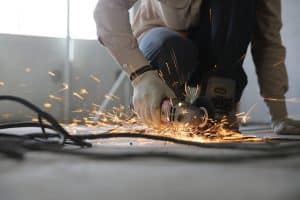Depositions are very common amongst dozens of different types of lawsuits that occur everyday. They can provide valuable information about the matter at hand but it is rare to find someone who actually knows what they are and what they do. So, here are five things to know about depositions.
What is a Deposition?
A deposition can be looked at as a question-and-answer session that helps the parties involved in a lawsuit obtain testimony and other evidence to use at trial. Typically conducted during the discovery phase, the parties sit down together and have a conversation of sorts in order to get to the bottom of the matter at hand.
What is Their Purpose?
Other than the standard acquiring of information, depositions can aid in a few other areas when it comes to a lawsuit. Firstly, a taped deposition could lock in witness testimony on the record in the event they attempt to change their statement at trial. If this occurs, their credibility as a witness would be severely questioned. Secondly, the questions and answers presented during a deposition could help gain insight into the case that might not have come up alternatively. An attorney may ask a relatively broad open-ended question and the opponent may provide more details than they needed to, providing an entirely new view into the dispute. Thirdly, in the rare case that the witness cannot testify at trial due to incapacitation, disappearance, death, etc., the recorded deposition preserves their testimony for both parties and the court.
Other than the standard acquiring of information, depositions can aid in a few other areas when it comes to a lawsuit. Firstly, a taped deposition could lock in witness testimony on the record in the event they attempt to change their statement at trial. If this occurs, their credibility as a witness would be severely questioned. Secondly, the questions and answers presented during a deposition could help gain insight into the case that might not have come up alternatively. An attorney may ask a relatively broad open-ended question and the opponent may provide more details than they needed to, providing an entirely new view into the dispute. Thirdly, in the rare case that the witness cannot testify at trial due to incapacitation, disappearance, death, etc., the recorded deposition preserves their testimony for both parties and the court.
What to Expect?
Stepping into a deposition can sometimes be intimidating, but knowing what to expect prior to entrance can help alleviate any stress or worry. Before anything, the deponent, or yourself, will be “sworn in” by being placed under oath to tell the entire truth or else be accused of perjury. Following this procedure, you will be sitting in a room with the opposing party’s attorney, your attorney, and a court reporter. Both attorneys will be questioning you in a direct and cross examination fashion while the reporter will be transcribing every question and its corresponding response, sometimes asking for a verbal response if not video recorded. Your attorney can instruct you to answer or not answer certain questions, but under very limited circumstances. Once all questions have been asked and answered, a copy of the deposition’s transcript will be offered and you as the deponent will be asked to review it, make any necessary changes to it, and then sign it under the penalty of perjury.
What to Avoid?
Although the best answers that can result from a deposition are authentic answers, there are a few things to avoid doing in order to ensure the session goes as smoothly as possible. They include, but are not limited to:
Don’t lie or testify truthfully or inaccurately or face the penalty of perjury.
Don’t be belligerent or threatening.
Don’t volunteer information you are not asked to share.
Dont say or do anything that violates rules or laws.
Do I Need a Lawyer?
Countless people tend to be nervous when discussing the possibility of organizing a deposition as they believe a lawyer is absolutely, positively necessary. But although this is not the case, depending on the jurisdiction, it is very strongly encouraged to retain an attorney for such a process rather than handling it pro se. Legal counsel have the ability to construct questions that can draw out facts that will later support claims or defenses, navigate objections, and things of the like as this is their field of expertise.
If you still have any questions regarding depositions or you would like to come in to see Peregonza The Attorneys for a free, no obligation consultation, please do not hesitate to call at (786) 650-0202 or fill out our personal intake form for more information.

















